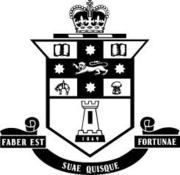This is a list of alumni of Fort Street High School, Sydney, New South Wales, Australia who have attained notability in various fields. It includes alumni of the historical Fort Street Boys' High School, Fort Street Girls' High School, Fort Street Superior Public School and Fort Street Model School (or Fort Street National School), from which Fort Street Public School also descends. They are named "Fortians" in the traditions of these schools.
Contents
- Politics, government and the law
- Science and academia
- Rhodes Scholars
- Military
- Business and industry
- Religion and community
- Entertainment, media and the arts
- Sport
- References
- External links
